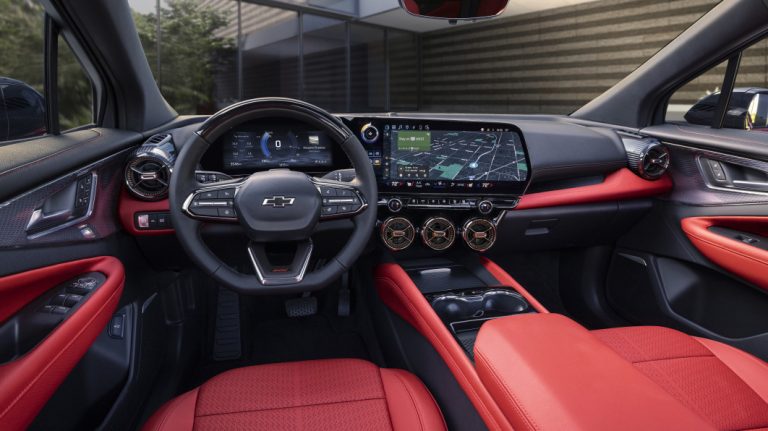General Motors announced its intention to remove Apple CarPlay and Android Auto functionality from its upcoming EVs earlier this year, and internet comments sections haven’t been kind since. As the first of many EVs to follow – the 2024 Chevrolet Blazer EV – hits the market, GM is expanding on its initial explanations for dropping the tech. Motor Trend spoke with Tim Babbit, GM’s head of product for infotainment, to learn more.
Attributed to Babbit, from the story: “They have stability issues that manifest themselves as bad connections, poor rendering, slow responses, and dropped connections. And when CarPlay and Android Auto have issues, drivers pick up their phones again, taking their eyes off the road and totally defeating the purpose of these phone-mirroring programs. Solving those issues can sometimes be beyond the control of the automaker.”
Babbit suggests that a world without Apple CarPlay or Android Auto will be a safer one, as folks won’t be looking to control their infotainment systems via their phones. However, Babbit also tells MT that this theory hasn’t been tested in either the lab or the real world yet.
Instead of using a navigation or music-playing app powered through your phone, upcoming GM EVs will use a Google-based infotainment system called “Ultifi” that runs a ton of integrated Google apps. Google Maps will be the native navigation app in the system; you’ll be able to log in to Spotify or other apps to load your music up, and so on. The idea here is that you’ll have all the same apps that were on your phone available but integrated within the infotainment system instead, and you’ll be able to use voice controls to control every last bit of it with no need to reach for a phone.
That sounds amenable in theory, but how consumers react to the removal of a feature that they know and love now is a risky gamble. Could consumers reject the GM infotainment software entirely and look at their phones even more while driving? Maybe! Or maybe not, but GM is betting that it’s the latter.
Another reason Babbit provided for axing smartphone mirroring is the user experience. Babbit suggests that Apple CarPlay and Android Auto phone compatibility issues are a common complaint in J.D. Power surveys, possibly dragging down GM’s perceived quality scores. According to Babbit, customers blame the automaker instead of the phone manufacturer for these issues, which hurts GM.
Of course, there’s a another reason GM is doing all of the above that’s been suggested since the announcement was made: data. Or in other words, who owns the data from your car? If GM can kick Apple out of the car, that data surely won’t belong to Apple, which is a big plus for GM.
Beyond the ability to harvest data and then use it for marketing or financial gain, there’s also the question of subscriptions. All future GM EVs will have free access to all of the lovely Google apps that come with the car for eight years. After that’s up, you’ll need to pay a subscription for further usage of the systems. Automakers everywhere are trying to find ways to tap into the subscription revenue generation system, and if you remove the ability to use similar services for free via Apple CarPlay or Android Auto, then future owners of these GM EVs will have no choice but to pay up if they want features like navigation or online music playback.










